
Frustrating, painful, saddening: police commander describes seven months of dealing with Hong Kong protests
- In a wide-ranging interview with the Post, Rupert Dover explains his thoughts and feelings during many of the most pivotal moments of the demonstrations
- Officers were ready to respond to the storming of the legislature, he says, but the order from higher up never came
In an interview with the Post, Dover, who has been in Hong Kong for more than three decades and was promoted to assistant commissioner in February, spoke about his experiences last year and the police response to significant events during the protests.
In the early stages of the protests in June last year, the police headquarters were surrounded and vandalised by protesters. What was that like for you?
We very much adopted a hands-off style. Protesters had been allowed on several occasions to surround the police headquarters, to vandalise, to spray-paint CCTV cameras, spray on the walls, throw rocks, and we didn’t go out and clear them.
It’s frustrating because we have the capability to deal with it. But the decision was made, presumably at a very senior level, not to engage in order not to worsen the situation, and not feed the protester narrative of police officers using violence. In the latter part of the operation, we became more proactive.
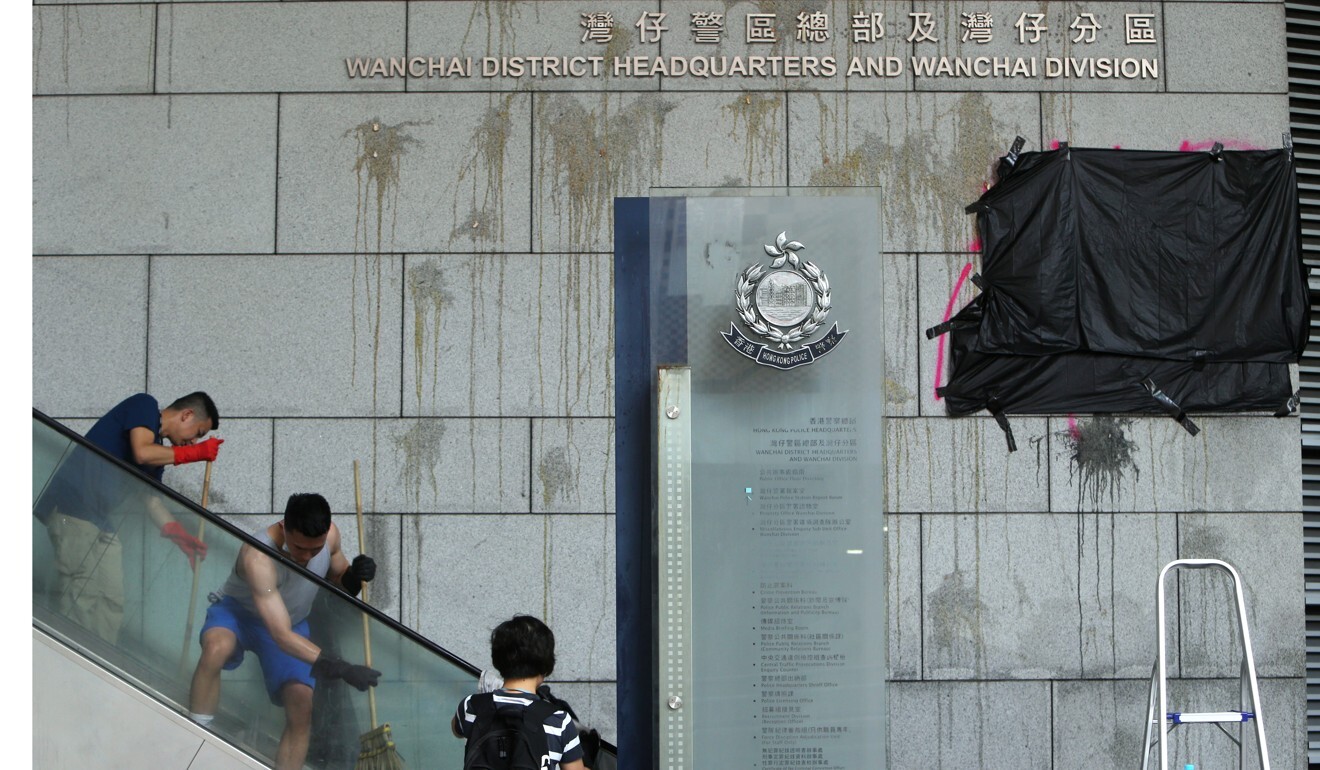
As one of six commanders involved in Operation Tiderider, the police response to the protests, what was hardest for you?
Individually there were tough moments working a 36-hour shift and getting four hours’ sleep, and then getting back on the ground. But the toughest moments are when officers get injured. As a ground commander, you’re leading, implementing tactics to clear protesters, trying to arrest, trying to calm people down. For both members of the public and officers, you have a direct responsibility to ensure there are no injuries. It was hard when people got injured, particularly those you know, officers working for you.
On July 1, a group of masked radicals stormed the Legislative Council and trashed the place, causing extensive damage. What were you doing that day?
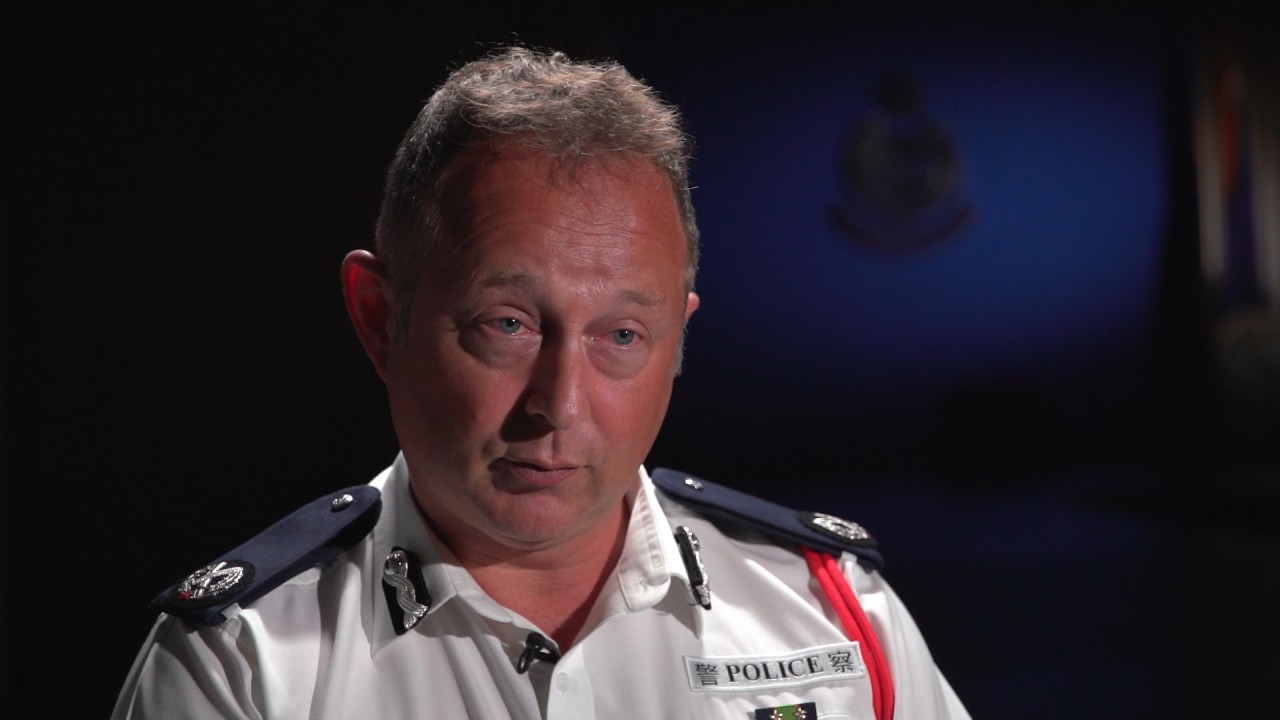
01:20
Senior police officer Rupert Dover on the July 1 storming of Hong Kong’s legislature
I was standing by at Tim Mei Road with about 600, 700 officers. We were ready to disperse the crowd, but we were never told to do it. Why the decision was made not to act, I don’t know. We had a big team ready to go and solve this problem, but we were not deployed. It was extremely frustrating. I don’t think any other country would allow the seat of government to be invaded, vandalised and literally destroyed, and we did. Very frustrating. But, also, it really does show a very high level of tolerance of the authorities.
On July 21, hundreds of men dressed in white and believed to be triad members brazenly attacked protesters and other MTR passengers at the Yuen Long MTR station in the New Territories. The police were criticised for being slow to respond. What do you say to that?
I was at the headquarters command and control centre that day. We were dealing with a major riot on Hong Kong Island, starting off in Western, spreading through into Central, and almost all of our resources had been pulled into Hong Kong Island to deal with that. When this incident suddenly popped up, there was an automatic time lag to get the requisite manpower up there. At the headquarters command and control centre, it was seen, it was registered, people were redeployed to deal with it. Was the main bulk of the riot police arrival slow? Yeah, because of the distances involved.
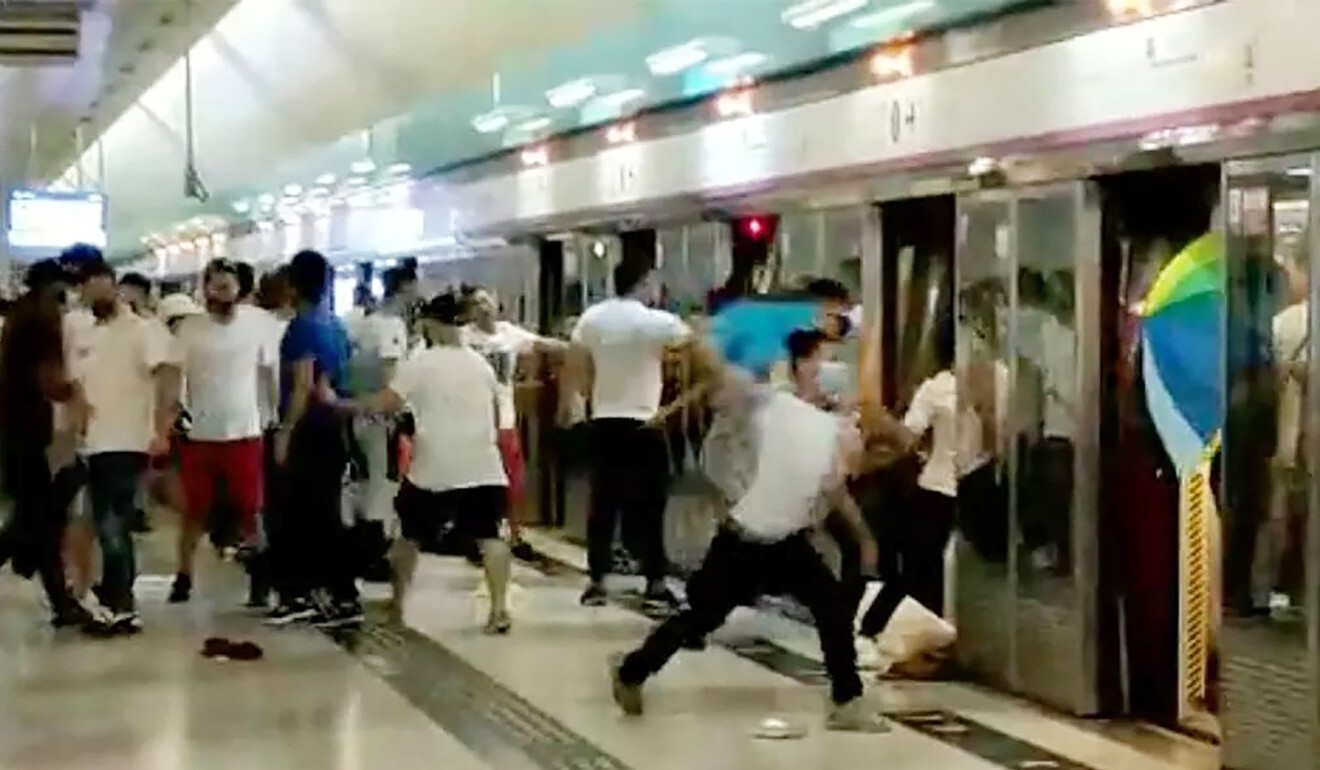
The police came under attack for entering Prince Edward MTR station in Kowloon on August 31, pursuing protesters. Widely circulated video clips show officers beating protesters, using pepper spray inside a train, and four young protesters cowering. Afterwards, despite strenuous denials by the government and police, rumours persisted that some protesters died in the station. What is your view of what happened there?
We had this situation during the protests where the MTR became the dirty, no-go zone for the police. The police did not go into the MTR system. But protesters could move around wherever they wanted and logistically, that created all sorts of problems because crowds would move very quickly from one area to another simply by using the MTR.
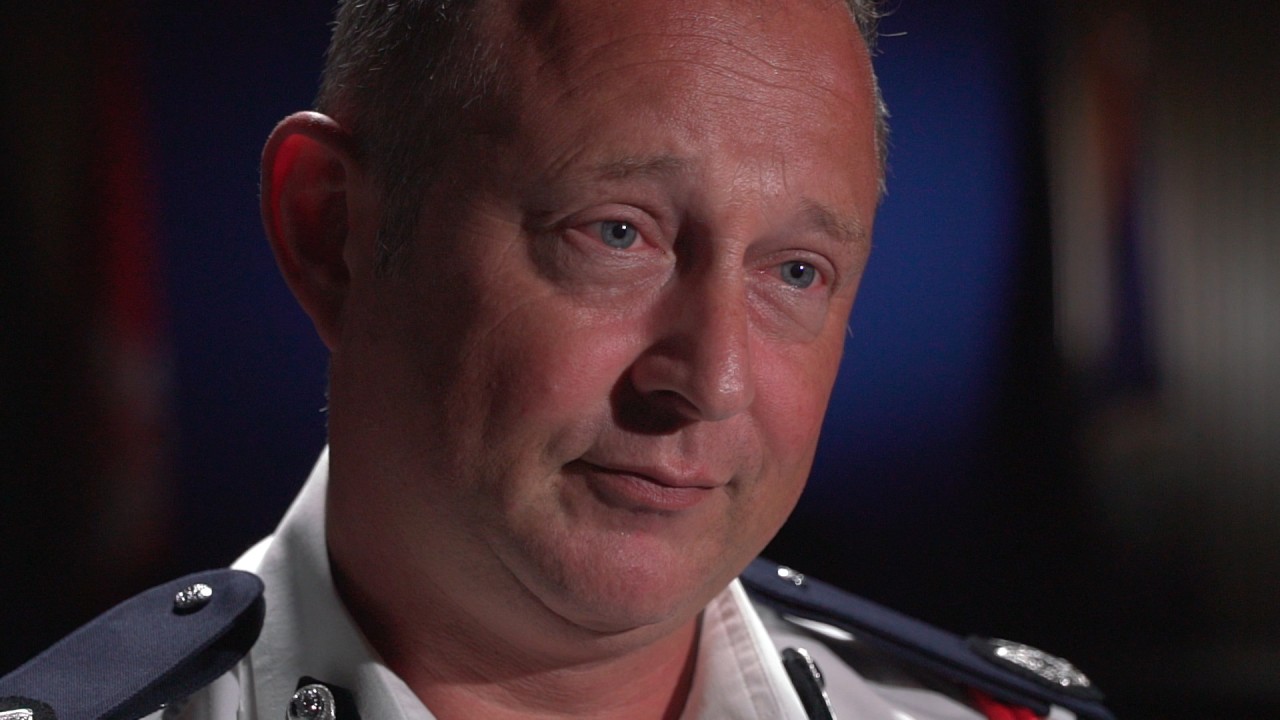
01:27
Senior police officer Rupert Dover on the Prince Edward incident
When the police eventually went into the MTR system, it had quite a positive impact on how we controlled the riots and our ability to respond to the riots. Suddenly, the protesters realised this wasn’t their automatic escape route.
All the [rumours of] people we killed in the Prince Edward MTR – absolute rubbish. There was not one single body, there was not one single family or relative [who reported a missing person].
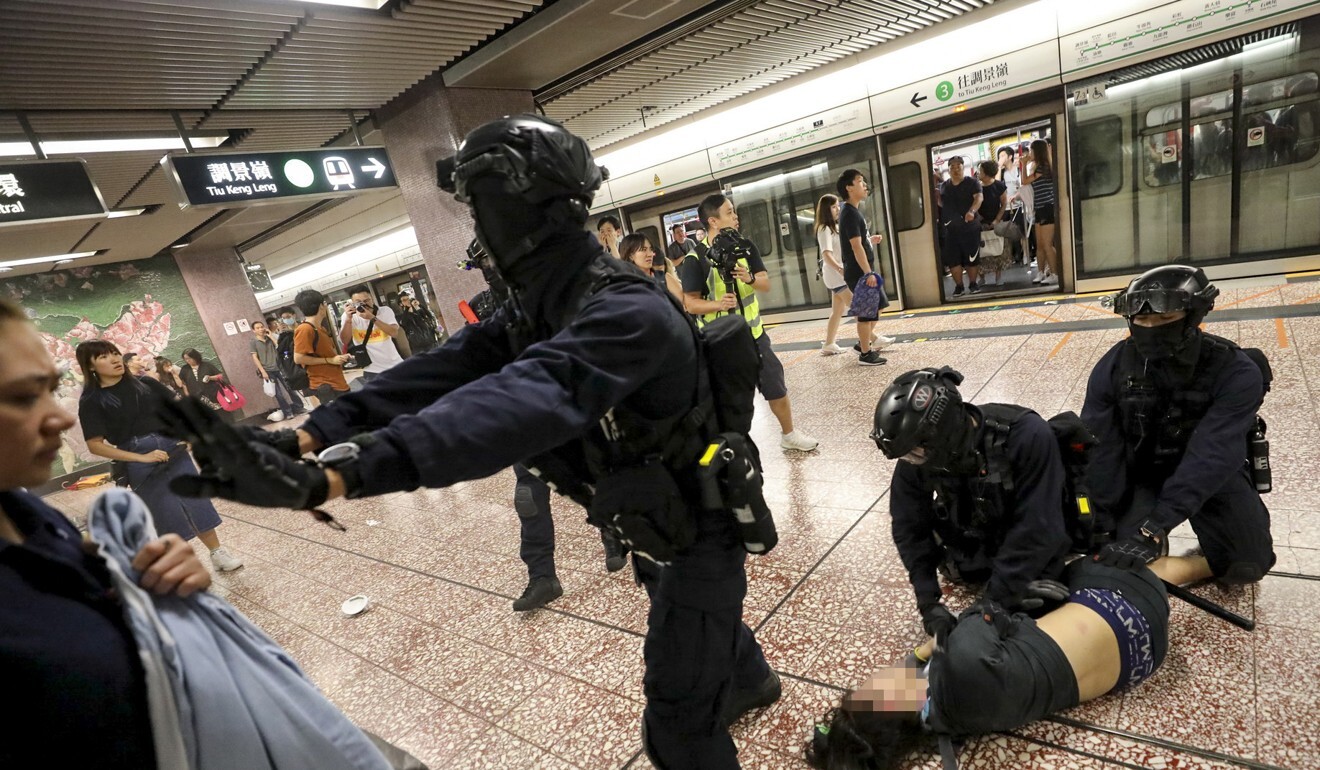
How do you describe what happened in Tsuen Wan on October 1, the first time a protester – an 18-year-old – was shot by a police officer?
I was in Tsuen Wan where the shooting of the young boy took place. It was an extremely violent crowd that day … out to have conflict, to cause trouble. I would say that over a seven-month period, October 1 was the most violent.
November 2019 saw the protesters moving into university campuses, particularly the Chinese University of Hong Kong and Polytechnic University. The police besieged the PolyU campus in Hung Hom for 13 days, during which there were violent clashes and the campus premises were trashed. By the end of the siege, about 1,100 people were arrested or had their particulars recorded. How do you explain the police strategy?
We shut the place down, that’s it. We were not putting up with any more of this. Yes, we’ve been criticised for action against reporters, action against medics. I’ve said before, 50 per cent of the people there were not who they said they were.
It was a very violent period – bows and arrows being fired at the police, they attempted to destroy a police armoured vehicle. Rocks, catapults, everywhere. From a policing perspective, yes, it was violent, but it wasn’t the most dangerous thing we’ve done.
We locked down [the campus], we cornered it, we were in control of it. I think it was a bit of a pivotal moment. A lot of people arrested, quite a few of them hard core. Nobody blames the PolyU students. By the time we had that place surrounded, most of the people inside weren’t PolyU students.
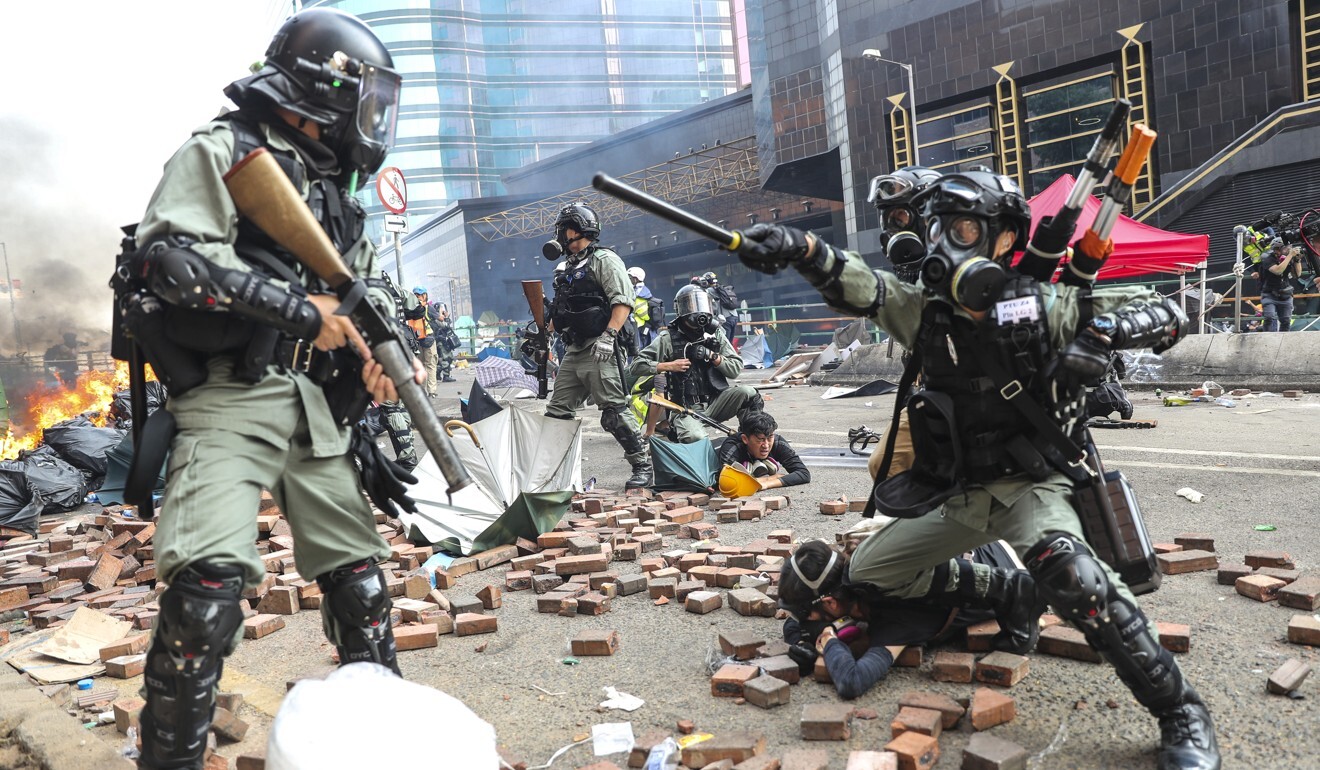
The police have been severely criticised and accused of brutality. You and some others among the 48 mostly British-born officers were singled out for attack. How do you feel about that?
There have been a lot of mistruths on social media about police officers, the expatriate police officers and about me. It is quite amazing.
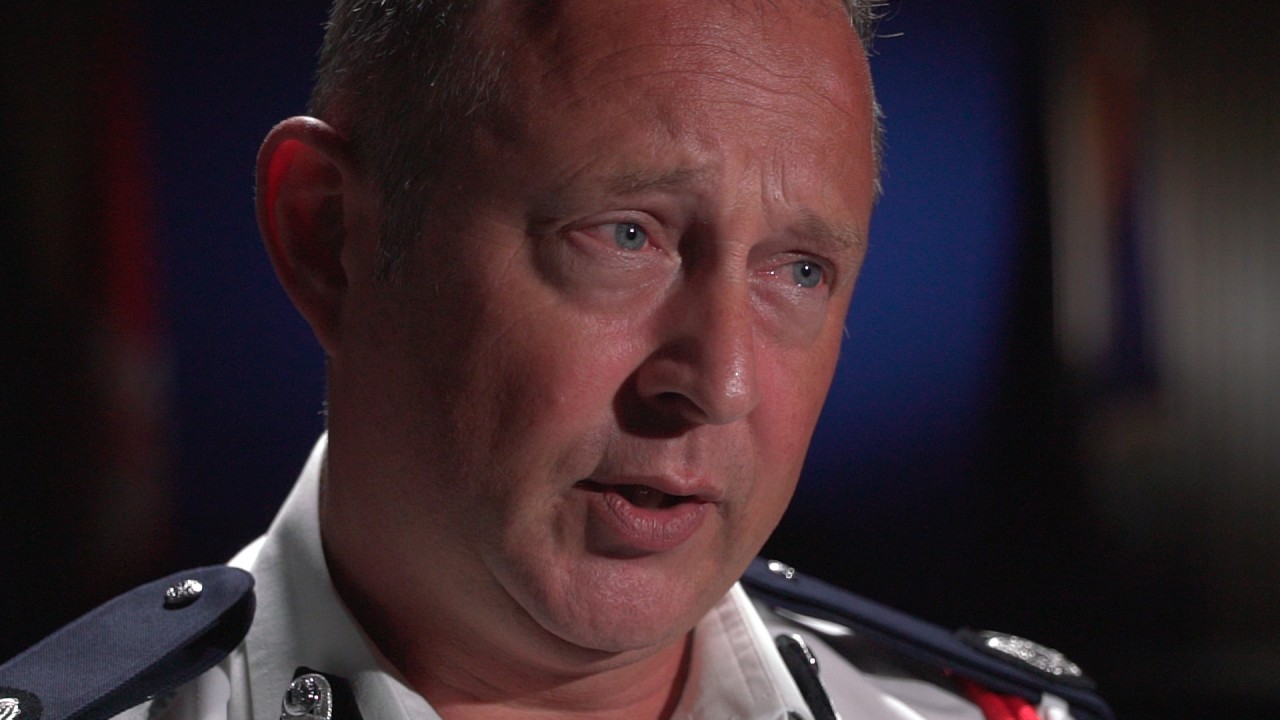
01:17
Senior police officer Rupert Dover on social media ‘mistruths’ about the force
We had a group of young people arrested at PolyU, including a girl who must have been 15 or 16. She was absolutely terrified, shaking. She hears my name, she thinks I’m going to rape her. She thinks I will take her around the back and shoot her. Absolutely terrified.
We had to sit her down, explain to her, no, you are under arrest, and this is why you are under arrest. You are going to go to the police station, you will probably be held for 24 to 48 hours. We will process you, take your fingerprints. We had to explain all this to her because she was convinced she was going to be silently executed somewhere.
That was the real sad thing about the protests, seeing these young people, completely brainwashed.
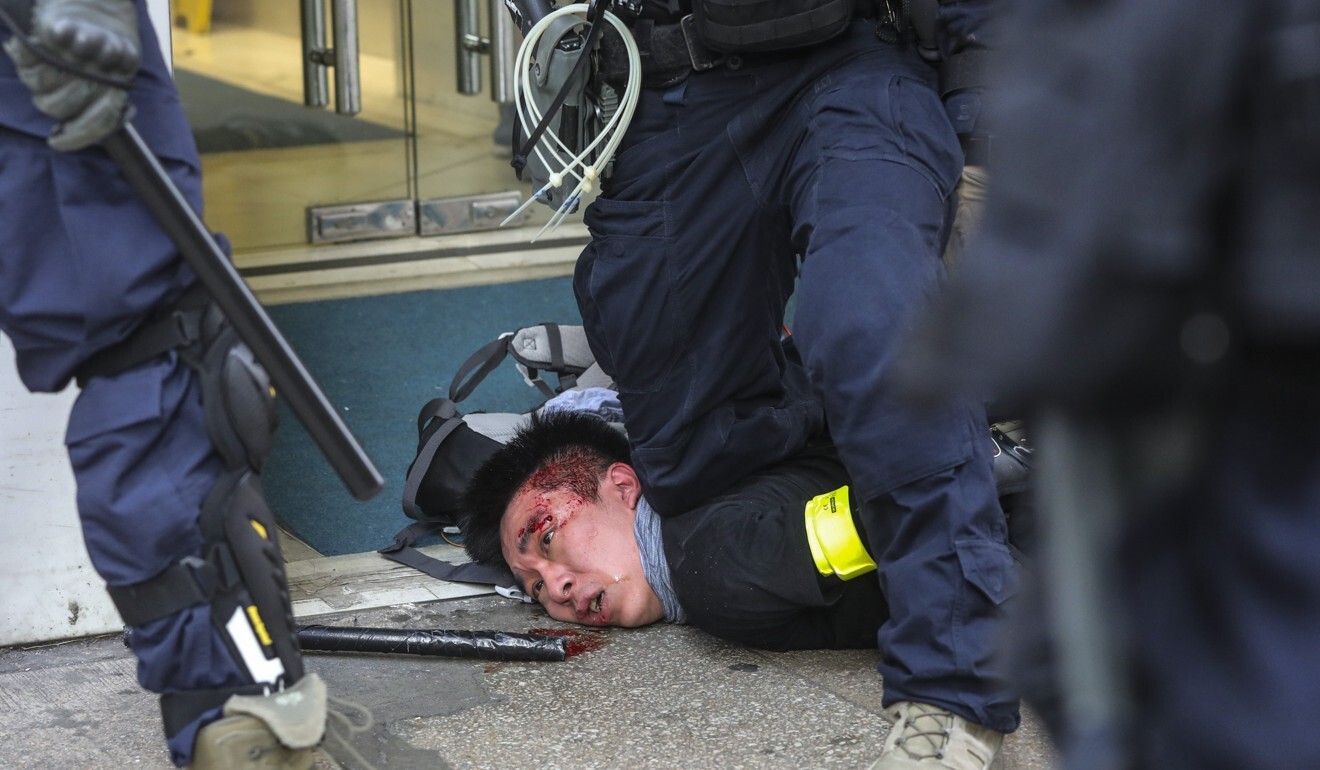
Can you describe your encounter last year with pro-democracy activist Joshua Wong Chi-fung, founder of the political group Demosisto and an organiser of the 2014 Occupy protests?
It was sometime in late June or early July, in Tsim Sha Tsui. Joshua Wong and a group of protesters singled me out, came up and started shouting abuse. It looked much worse [in video clips] than it was. We were up at North Canton Road. I deliberately walked all the way down to Canton Road, allowing Joshua and his followers to follow us, intending to go around the back of the Cultural Centre, an easier place to contain people. But they didn’t cross the road.
He has his own agenda, I understand that. For us, the important factor was not to have any outbreak of violence that night. If that meant letting him follow me down Canton Road and having his friend shouting at the Avenue of Stars, so be it. It’s better than having some pitched conflicts and battles.
After Joshua Wong and other pro-democracy figures actively lobbied foreign governments for support, citing police brutality against protesters, some United States officials threatened sanctions against Hong Kong. Does that worry you ?
I’m not worried. I’m not a human rights abuser. There are no burnt villages. There are no mass graves. It’s just been police officers doing their job, acting in accordance with the law. I appreciate that a lot of the public don’t like that, but that’s the way it is. If we didn’t have this sorted, we’d be in a far worse position.











